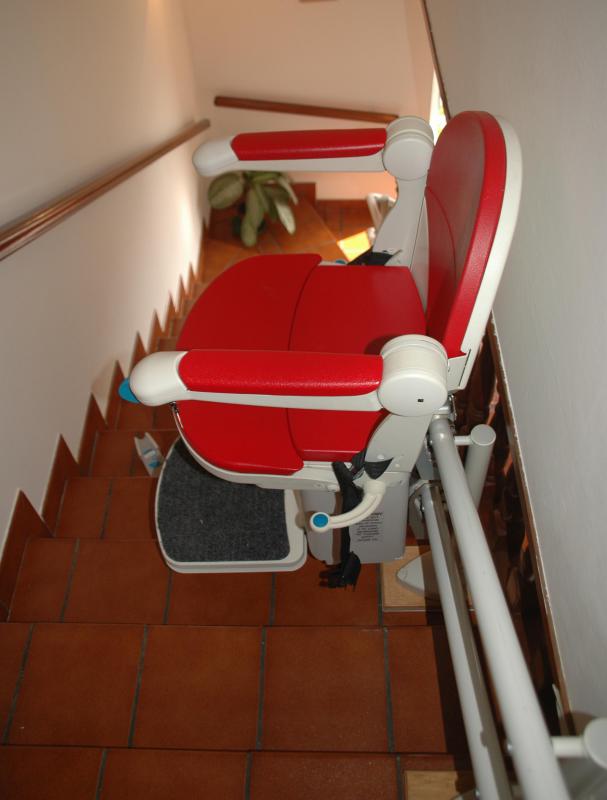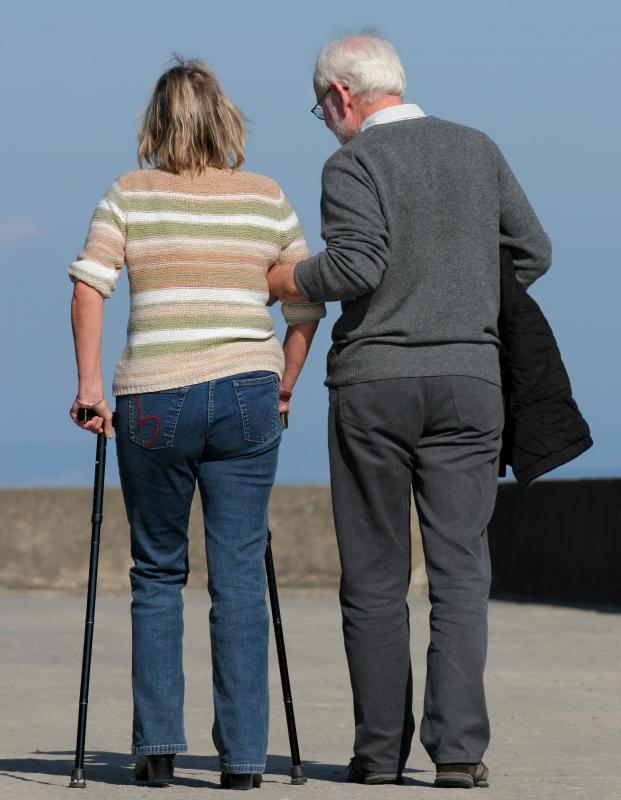At TheHealthBoard, we're committed to delivering accurate, trustworthy information. Our expert-authored content is rigorously fact-checked and sourced from credible authorities. Discover how we uphold the highest standards in providing you with reliable knowledge.
What Conditions are Considered Physical Disabilities?
Physical disabilities are medical conditions that impair a person's ability to perform daily tasks and live independently. Conditions that affect mobility, hearing, speech, vision, or cognitive abilities are all considered physical disabilities. A person's physical disability may be obvious. Those with mobility impairments might, for instance, need crutches, wheelchairs or other adaptive devices to get around. Others suffer from disabilities that aren't immediately obvious, such as epilepsy, dyslexia, or mental illness. There are many types of disabilities, with many different causes, and while some disabilities are congenital, others are acquired later in life.
Physical impairments may be the most widely known type of disability. A person with a physical impairment has difficulty using, or cannot use, one or more limbs, or may have problems with motor control. Amputation, cerebral palsy, and spinal cord injury are some of the causes of mobility impairments. Persons with broken bones can also be considered to have a mobility impairment, even though this impairment may only be temporary.

Cognitive impairments are often counted as physical disabilities. People with cognitive impairments might suffer from a learning disability, or a mental condition such as Alzheimer's disease. Mental retardation is usually considered a form of cognitive impairment. Those who have suffered brain trauma may also be considered to have a cognitive impairment.
People with psychological illnesses may be considered physically disabled. Psychological disorders can be difficult to treat and can severely hamper a person's ability to perform routine daily tasks and self-care.

Vision impairments are a common form of physical disability, as many people eventually suffer some form of injury to the eye. Vision impairments can be minor in nature, and even temporary. Severe vision impairments can include total blindness. Like other types of disabilities, vision impairments may be present at birth, develop over time, or occur as a result of injury or illness.

Those with hearing impairments may experience difficulty hearing sounds clearly, or they may experience total deafness. Hearing impairments are common, and can occur due to injury, disease, exposure to loud noises or old age. Many hearing impairments develop slowly over time, leaving the impaired person unaware of his own disability until the symptoms become too troublesome to ignore. Others may be born partially or completely deaf.
Most deaf people communicate by lip-reading and sign language. Currently, there are believed to be hundreds of sign languages. Each of these is considered as complex as any oral language.
Some people suffer from physical disabilities known as "invisible disabilities." These are physical disabilities that may not be immediately obvious to others. Invisible disabilities can include a number of debilitating medical conditions, brain injury, cognitive impairment, or any condition that impairs a person's ability to function and care for himself.
AS FEATURED ON:
AS FEATURED ON:













Discuss this Article
Post your comments